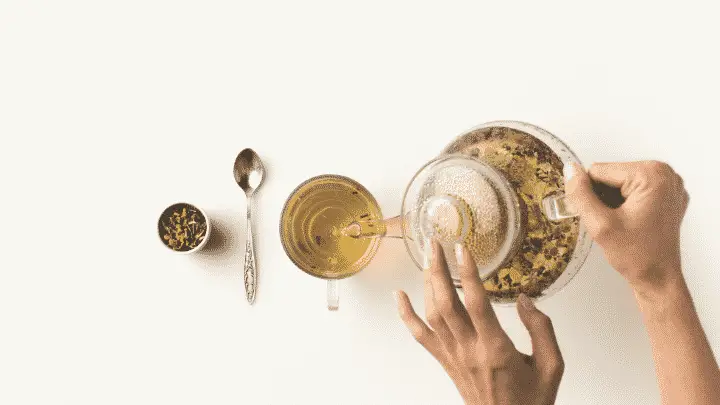My bedroom no longer feels like a sanctuary for me. The air felt stale and there is a lingering chemical scent after spraying fresheners and other cleaning solutions. What worried me the most is reading up on the dangers of toxic substances that may linger in the air that comes from my household cleaners and whatnot. I knew I had to do something to make my bedroom my safe place. This is why I thought of adding the best plants in my bedroom.
Benefits of Plants in the Bedroom
There are those who say that adding plants in the bedroom is not a good idea, but if you ask plant owners, they will disagree. It appears that plants for bedroom do have positive effects not only on how your room looks like but your sleep quality as well. For those who are wondering what benefits to be gained by adding bedroom plants, here are a few worth mentioning.
- Improved air quality
The air indoors can become polluted with all the chemical compounds coming from paints, house cleaning products, and other products that you use. But it appears that plants have air purifying qualities that can cleanse the air. - Fragrance
Plants do have their own fragrances such as those that have flowers that can give that natural scent indoors. - Mood booster
Another benefit of putting up plants in your bedroom is that it can help perk you up as pops of colors and greenery, especially in winter. - Improves room humidity
Having plants in the bedroom can help increase the levels of oxygen at night which can improve humidity levels. - Absorb toxins
There are plants that can absorb toxic substances in the air which ensures that the air that you breathe in is safe. - Alleviates stress and anxiety
Being surrounded by nature does help reduce your stress levels, that is why adding some bedroom plants to your space can help you feel more relaxed at night.
Tips for Keeping Plants in the Bedroom
Plant care will vary depending on the plants for bedroom that you have chosen. Some can thrive with minimal watering, while others will require plenty of bright light for them to thrive. That said, here are a few tips for keeping your indoor plants in your bedroom in good shape.
- The soil of your plants should be moist and not wet or soggy as overwatering can cause root rot. You can check if your plant needs more water by sticking your finger into the soil. If the surface of the soil is dry and cracking, it needs water ASAP.
- Your indoor plants should have good drainage to prevent water from stocking up underneath. Although some plants can thrive in such conditions, there are those that are picky when it comes to the amount of water it receives.
- Determine which plants that will require bright light, indirect light, or even low light, so you will know where to place them in your bedroom. Cactus and succulents prefer hot areas so they are great by the windows. If you do not have enough light source in your bedroom, artificial lighting can be an alternative.
- Repot the plants when they have grown bigger to help them stay healthy.
The 10 Best Plants for Your Bedroom
I have been looking for the best plants indoors that I can add to my bedroom and these are among the top choices that I came up with. You can choose any from this list or get them all, (it’s not hoarding, right?) as long as you can care for them.
Jasmine
Jasmine is more than just a pretty plant to use as an accent piece in your bedroom. Studies show that the scent coming from the flowers can help improve your sleep quality. This, in turn, makes you feel refreshed and energized the following day. Jasmine likes bright light too, so placing it by your windows can give it its much needed nourishment. The best part? You can gather the flowers and dry them first before adding to your green tea. Just make sure that you do not drink green tea at night because of its caffeine contents.
Aloe Vera
Aloe vera contains gel-like substance in its leaves that is often used on cuts, burns, and even rashes. But these are not the only health benefits that you can get from it. Aside from thriving easily in low light, the aloe plant can increase the levels of oxygen at night rather than the day which gives you that extra dose of O2 which can improve your sleep. It prefers bright direct light for just a few hours, preferably from south-side facing window. Water it when the soil is partially dry. You’ll be growing plenty of babies with just one aloe vera plant which is nice as you can spread it around the house.
Snake Plant
Snake plant, or mother-in-law’s tongue, has pointy leaves that are quite striking to look at. If you are just starting out as a plant owner, you will not be disappointed with this hardy plant. The only time that you will need to water it is when the soil is almost dry. The snake plant needs bright indirect light so find a good spot in your bedroom for this tough-as-nails plant and watch it grow while giving your space additional source of oxygen.
Lavender
Instead of spraying lavender air freshener in your bedroom, why not get the real deal instead? Place a lavender plant by your bedside and get to inhale its soothing and relaxing scent. Aside from making you sleep better at night, this indoor plant can also help regulate your heart rate and your blood pressure too. If you are having some trouble sleeping at night, this will be a good option to
Valerian
Valerian is another type of bedroom plants that are useful to have around as the scent coming from its blooms can make you drift off to sleep faster. This type of plant is known for its mild sedative properties which can make you feel more relaxed. If you are going to add this in your space, it will require full sun for six hours, so you will need to place it by the windows where light filters in.
Peace Lily
If you are having trouble with allergies, getting a peace lily for your personal space is highly recommended. As the name suggests, the flower of this plant is a beauty, and the best part is that caring for it is not that hard. Why should you get it for your sanctuary? It helps reduce the amount of microbes in the air which can provide relief to your allergies. And since there is less allergens up in the air, you will be able to sleep better too thanks to the peace lily in your room.
Gardenia
What other plants for a bedroom should you consider? If you want to add a flowering plant, Gardenia is a good choice because aside from its pretty flowers, it functions as a natural sedative too just like valerian. It will require bright light too with soil that is moist but not too wet.
Spider Plant
Another option to consider for bedroom plants is the spider plant. This is a classic and one that you can easily pick out from your local gardening store by its striped leaves that appear to arch from the center. When it produces new plants, they will be called as plantlets. Good lighting for a few hours is all it needs and keep the soil moist too.
Golden Pothos
If you want a plant that can grow without much coddling on your part, then the goldon pothos is an excellent choice. Its signature heart-shaped leaves and vining stems can easily grow to several feet. It likes moderate to bright light and will like to have dry soil in between waterings too. You can start with the golden pothos if you are not confident of having a green thumb just yet.
Chinese Evergreen
The Chinese Evergreen is best described as having these glossy, pale green leaves with white accents. It can thrive in low light and likes it soil to be a bit moist. It doesn’t like the cold so make sure that you do not place it in areas where draft is present.
Common Questions About Plants & Sleep
It is understandable that you will have a few questions about adding a plant in your bedroom. Here are a few that are often asked by those who are considering using one in their own personal space.
What plants help you sleep?
There are a variety of plants that can improve the quality of your sleep such as English Ivy, Snake Plant, Lavender, and Gardenia just to name a few. You will have to do your research for indoor greens to add to your space, if you want to usher in a fresh look to your space.
Is it healthy to sleep with plants?
There is nothing wrong with having plants in your bedroom as they have air purifying qualities that can make you sleep better at night. Some can even absorb all the carbond dioxide present in the air which is beneficial to you in the long run. Just make sure that the one that you will get are among those mentioned above.
Can houseplants grow in low light?
Some houseplants can do well in low lighting such as the aloe plant and snake plant too. If your bedroom doesn’t have enough lighting you should look for plants that can thrive in such settings. You can also put up artificial lighting if you like to help give your plants a different source of light or you can move them outdoors for their daily dose of sunshine.
Do they release oxygen for better sleep?
Yes, plants generate oxygen which makes them a great addition to your indoors. Some exude more oxygen compared to others such as in the case of the aloe plant which produces more of the valuable air that we breathe at night.
Where is the best place to put them?
This depends mostly on the type of plant that you will get. Some prefer bright and direct sunlight, while others can do well with bright indirect light. It is a good idea to know more of the plant or plants that you will get for your indoors so you can have an idea where they should be placed.
What is the feng shui of plants in the bedroom?
There is an ongoing debate on whether plants should be placed indoors or not. Based on feng shui experts, adding something green in your personal space is good since it ushers in wood energy. This particular energy that plants generate is one of healing, flexibility, and even kindness.
However, there are some practitioners that do not agree with adding bedroom plants because the wood element indicates that the energy in the room goes upward and expands. This type of unfurling is not recommended for those who have difficulty sleeping or are sensitive in nature. This will depend mostly on the type of qi that you have.
Summary
Should you or should you not add plants in your place of rest? This depends mostly on your preference. However, if you are like me, who wants to shake things up in my own personal space, you should start looking for the best plant indoor to grace your bedroom. One of the things that prompted me to get some greens for my space is the promise of improving the air quality. I prefer the smell of nature rather than the chemicals that we often use in our household.
Regardless of whether you are just starting out your plant nursery or a pro already, incorporating greens and flowering plants to your indoor space will not only make your space look amazing, but it can be beneficial to your overall health too.



